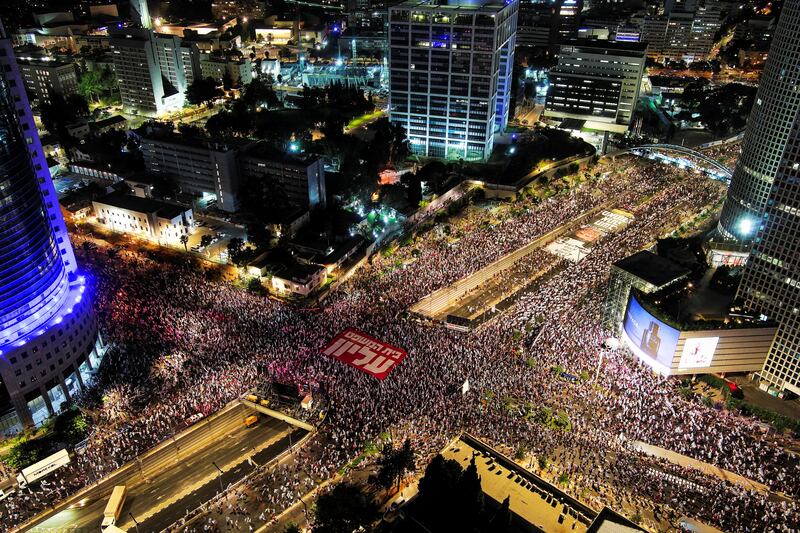Thousands of Israelis protested on Saturday against the hardline government's judicial overhaul plan, ahead of a court hearing on a key element of the controversial reforms that have divided the nation.
"There is no such thing as democracy without the Supreme Court. Democracy, democracy!" chanted protesters in Tel Aviv, where the rallies have taken place every Saturday since January.
Protests were also held in Jerusalem, Haifa, Beer Sheba, Modiin, Herzilya, and some other cities, organisers said.
Tens of thousands of Israelis have demonstrated weekly since the plans for judicial reform were unveiled by the government in January, in what has become the largest protest movement in the country's history.
At least 150,000 people were estimated to have turned out at a protest in Tel Aviv last weekend.
The latest demonstration comes ahead of a Tuesday hearing in the Supreme Court on annulling parliament's July vote to limit the so-called "reasonableness clause" used by the top court to review some government decisions.
Israel does not have a constitution or upper house of parliament, and the "reasonableness" law was put in place to allow judges to determine whether a government had abused its powers.
In June, Prime Minister Benjamin Netanyahu told the Wall Street Journal he would drop the clause - the most controversial part of the package - from the reforms.
It has recently been used to bar Aryeh Deri, a Netanyahu ally, from serving in the cabinet because of a tax evasion conviction.
"On Tuesday, the Supreme Court will have a discussion on whether the law the government has passed is legal or not," protester Yuval Inbar, 21, told AFP.
"If we don't come here (to protest) we are afraid that the government is not going to respect the Supreme Court."
Politicians last week were quick to reject claims a compromise had been reached between the government and opposition over the judicial reforms.
President Isaac Herzog has been presiding over talks between both sides in a bid to avoid what he called "civil war."
The reforms have deeply divided both the government and wider society, and have implications for Israel's security, with swathes of reservists refusing to serve over the proposals.







